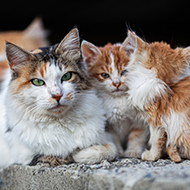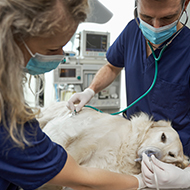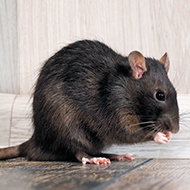Coronavirus caused FIP outbreak, study reveals
The disease killed thousands of cats in Cyprus.
The Royal (Dick) School of Veterinary Studies and the Roslin Institute have revealed that a new strain of coronavirus caused the spread of a harmful feline disease in Cyprus.
Thousands of cats are believed to have died from feline infectious periodontitis (FIP) in Cyprus, with a handful of cases also confirmed in the UK.
The virus which led to the outbreak has proven to be a hybrid of cat coronavirus combined with dog coronavirus. This had resulted in a recombinant virus, named FCoV-23.
Usually, a feline coronavirus will mutate within a cat's system to cause FIP. The disease is severe but, once established, does not usually spread.
The newly developed coronavirus, however has a protein acquired from the canine virus.
This adaptation has enabled FCoV-23 to avoid the existing immunity and frequently mutate in cats of all ages. This is what caused the FIP cases to multiply.
Researchers say that the outbreak demonstrates a need for international cooperation to monitor and control disease transmission.
It is believed that Cyprus' large feline population caused it to become a hotspot for the spread of FIP. Researchers are now calling for strict guidelines for moving pets across borders, as well as a improved awareness for disease control among veterinary professionals and pet owners.
An additional study from the University of Washington has explored the role of the newly acquired protein in influencing the virus' behaviour.
The research revealed that, because mutations occurred in individual cats, the virus was able to quickly enter cells to cause infections. However, the protein was also found to pose limited risks to humans.
Christine Tait-Burkard, from the Roslin Institute, said: “Introduction of a more successful, spreading variant to a dense population, such as the cats in Cyprus, may be sufficient to allow this virus to cause an outbreak.
“More research is needed to better understand this virus, and this type of coronaviruses more widely. The development of new vaccines and optimisation of antiviral treatment regimes could help mitigate the consequences of this devastating disease.
“For the future, we must consider how we could intervene earlier and prevent disease spread.”
The studies have been published in the journal Nature.
Image © Shutterstock






 The VMD has announced dates for its next Veterinary Dispensary Manager Online Course.
The VMD has announced dates for its next Veterinary Dispensary Manager Online Course.
